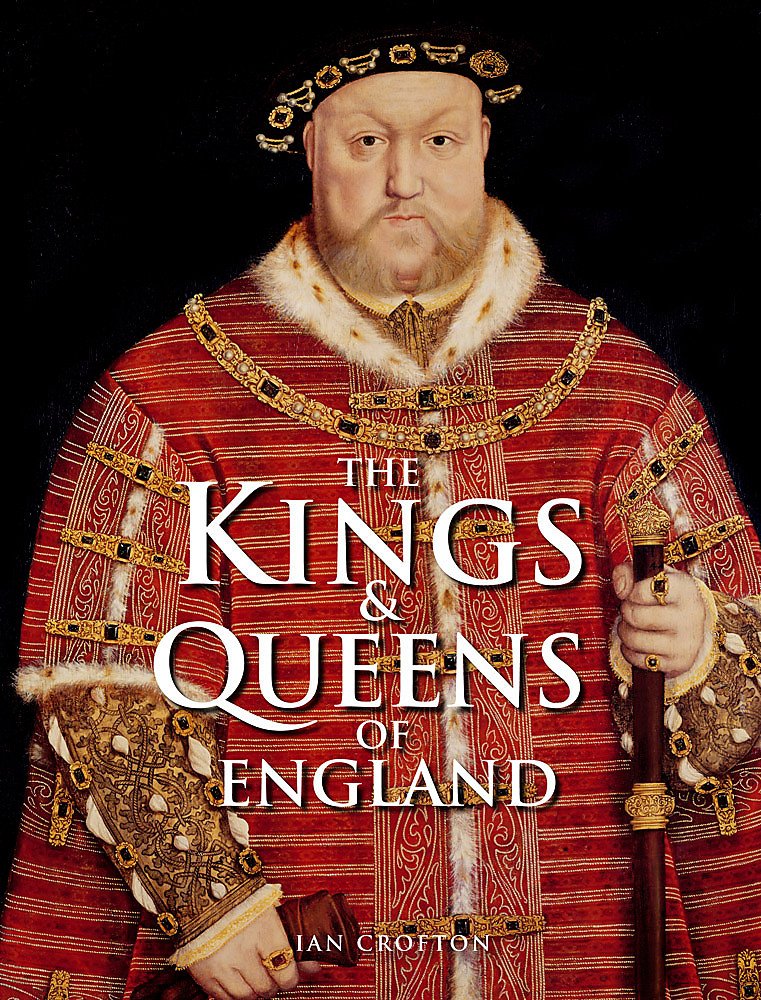The Kings and Queens of England
- Brand: Unbranded

Description
Kingship, despite the crown, robes, processions, coaches, trumpets and anthems, has often been an undignified activity – all the more so because it’s supposed to be dignified. Throughout the middle ages, our rulers supposedly had the endorsement of God, which made their failures all the more humiliating. King Alfred, the first king to lay claim to ruling the English as a people and the only English king to have been issued with the epithet “Great”, nevertheless spent a large part of his early reign hiding from the Vikings in a bog – by which I mean a marsh. Marks, Richard; Payne, Ann; British Museum; British Library, eds. (1978). British heraldry from its origins to c. 1800. British Museum Publications Ltd. ; The Numismatist. American Numismatic Association. 1971. Philip was not meant to be a mere consort; rather, the status of Mary I's husband was envisioned as that of a co-monarch during her reign. (See Act for the Marriage of Queen Mary to Philip of Spain.) However the extent of his authority and his status are ambiguous. The Act says that Philip shall have the title of king and "shall aid her Highness ... in the happy administration of her Grace's realms and dominions", but elsewhere says that Mary shall be the sole Queen.
Eadweard (Edward the Martyr)". archontology.org. Archived from the original on 17 March 2007 . Retrieved 17 March 2007. ; "Edward II 'The Martyr' (r. 975–978)". royal.gov.uk. 12 January 2016. Archived from the original on 25 January 2018 . Retrieved 16 January 2018. I have read some of the longer versions of these, particularly for James I and Charles I. The longer versions are much more interesting and, obviously enough, contain much more detail. I've always found the homosexual antics of James I particularly amusing, especially given he gave his name to the ever popular version of the Bible – or is it just me who sees this as being somewhat amusingly ironic?This was a really informative and enjoyable read. Story being the essence of history (of good history, at any rate), this collection of biographical essays chronicling the lives of each of England's rulers (post 1066 - pre Norman monarchs are not dealt with here) makes for a very engaging and illuminating tour of English history as a whole. I got this volume at a used library sale a number of years ago and have frequently skimmed various parts. But after watching The King’s Speech and being also in the midst of working my way through Shakespeare's historical plays (to which this makes an excellent companion), I decided to dive in and read it cover to cover. a b Pine, Leslie Gilbert (1983). A Dictionary of mottoes. Routledge. p. 53. ISBN 978-0-7100-9339-4. William III". archontology.org. Archived from the original on 29 October 2007 . Retrieved 25 October 2007.
Eadred: Regis qui regimina regnorum Angulsaxna, Norþhymbra, Paganorum, Brettonumque ("Reigning over the governments of the kingdoms of the Anglo-Saxons, Northumbrians, Pagans, and British") After the death of Queen Elizabeth I without issue in 1603, King James VI of Scotland inherited the English crown as James I of England, joining the crowns of England and Scotland in personal union. By royal proclamation, James styled himself "King of Great Britain", but no such kingdom was actually created until 1707, when England and Scotland united during the reign of Queen Anne to form the new Kingdom of Great Britain, with a single British parliament sitting at Westminster. This marked the end of the Kingdom of England as a sovereign state. Arguments are made for a few different kings thought to have controlled enough Anglo-Saxon kingdoms to be deemed the first king of England. For example, Offa of Mercia and Egbert of Wessex are sometimes described as kings of England by popular writers, but it is no longer the majority view of historians that their wide dominions are part of a process leading to a unified England. Historian Simon Keynes states, for example, that "Offa was driven by a lust for power, not a vision of English unity; and what he left was a reputation, not a legacy." [2] This refers to a period in the late 8th century when Offa achieved a dominance over many of the kingdoms of southern England, but this did not survive his death in 796. [3] [4] Likewise, in 829 Egbert of Wessex conquered Mercia, but he soon lost control of it.a b c "Richard Cromwell, Lord Protector, 1626–1712". british-civil-wars.co.uk. Archived from the original on 12 October 2007 . Retrieved 25 October 2007. Richard III". archontology.org. Archived from the original on 16 October 2007 . Retrieved 25 October 2007. ; "Richard III (r. 1483–1485)". royal.gov.uk. 14 January 2016. Archived from the original on 25 January 2018 . Retrieved 16 January 2018.
- Fruugo ID: 258392218-563234582
- EAN: 764486781913
-
Sold by: Fruugo
